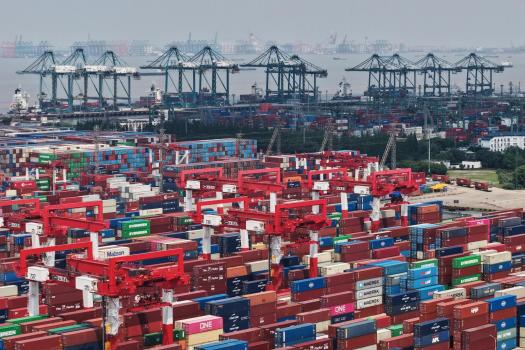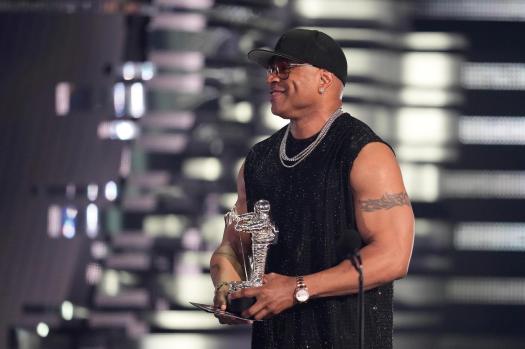Written by AP Business Writer ELAINE KURTENBACH
BANGKOK (AP) President Donald Trump stated that the United States and China have completed a trade agreement and that he anticipates signing a deal with India shortly.
The agreement was inked earlier this week, Howard Lutnick, the secretary of commerce, said Bloomberg TV. Trump and Lutnick did not elaborate on the terms of the deal.
Late Thursday, Trump stated, “We just signed with China the other day.”
According to Lutnick, the agreement was finalized and signed two days prior.
It was unclear whether the most recent arrangement differed from the one Trump had announced two weeks prior, which he claimed would facilitate American industry’ access to rare earth materials and much-needed magnets. The U.S. agreed to cease attempting to cancel Chinese nationals’ visas on American college campuses, and the agreement paved the ground for the continuation of trade negotiations.
China’s Commerce Ministry announced on Friday that the framework’s specifics had been further verified by both parties. However, the U.S.’s access to rare earths—minerals used in high-tech applications that have been at the heart of the negotiations—was not specifically mentioned in its statement.
Applications for the export of restricted goods that satisfy legal requirements will be accepted by China. As a result, the US will lift a number of restrictive policies imposed on China. It stated that it is hoped that China and the United States will compromise.
The deal comes after preliminary negotiations in Geneva in early May, where both parties agreed to delay significant tariff increases that threatened to halt a large portion of trade between the two nations. The accord Trump described seemed to codify the foundation for negotiations that had been established during later talks in London.
The president prefers to seal these agreements on his own. He is the negotiator. Lutnick declared, “We’re going to have deal after deal.”
China said earlier this week that it was expediting approvals of exports of rare earths, which are elements used in high-tech products like electric vehicles, but it has not disclosed any new agreements. One of the main points of dispute has been Beijing’s restrictions on rare earth exports.
The Chinese Commerce Ministry announced on Thursday that Beijing had authorized a specific number of applications that were in compliance and was speeding up the review of rare earth export license applications.
Following China’s imposition of permitting requirements on seven rare earth elements in April, which threatened to disrupt the production of cars, robots, wind turbines, and other high-tech products in the United States and around the world, export controls of the minerals appear to have taken precedence over tariffs in the most recent round of trade negotiations between Beijing and Washington.
Related Articles
-
Canadian man held by immigration officials dies in South Florida federal facility, officials say
-
Trumps drop Made in the USA label for new phone and a debate ensues: How to define made ?
-
Meet the Senate parliamentarian, the official tying Republicans in knots over their tax bill
-
Native leaders blast construction of Florida s Alligator Alcatraz on land they call sacred
-
Pentagon briefing shows fury of B-2 bunker-busting bombs
China has also lately taken action on the fentanyl problem. Last week, it declared that it would designate two additional substances as fentanyl precursor chemicals, subjecting them to export, transportation, and production rules. In order to prevent the flow of these precursor materials to Mexican drug cartels, who use them to manufacture fentanyl for sale in the United States, Trump has called on Beijing to take further action. As part of the present 30% general duties on Chinese goods, he levied 20% tariffs on Chinese imports due to the fentanyl problem.
As Trump intensified his trade battle and dramatically increased import charges, the Geneva deal in May called for both parties to reduce the punitive tariff hikes. Certain larger tariffs, like those Washington slapped on the fentanyl trade and on steel and aluminum, are still in effect.
The two biggest economies in the world are suffering as a result of the quickly changing policies.
Between January and March, the U.S. economy shrank by 0.5% annually, in part due to a spike in imports as businesses and consumers scrambled to purchase goods from overseas before Trump could impose tariffs.
In May, manufacturing profits in China fell more than 9% from the same month the previous year, with automakers bearing a disproportionate amount of the decline. Between January and May, they had a decline of over 1% annually.
Trump and other U.S. officials have stated that they hope to negotiate trade agreements with India and numerous other nations.
According to Lutnick, we will have deal after deal after deal.











